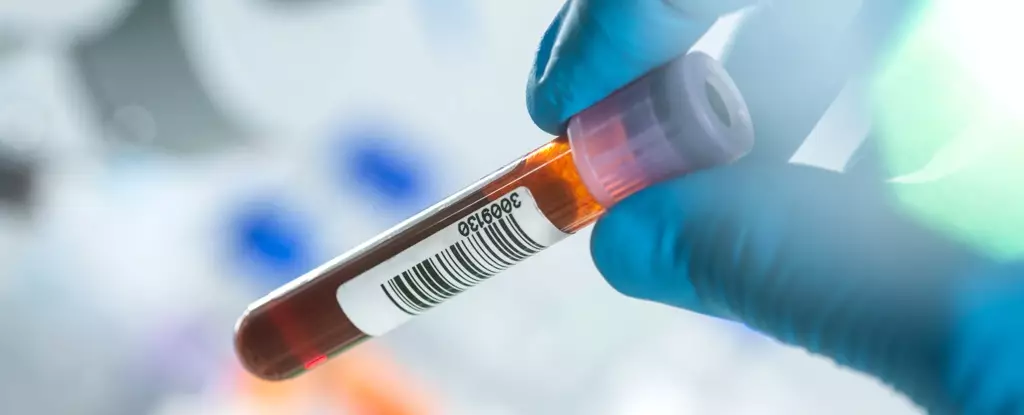The landscape of Alzheimer’s disease detection has shifted dramatically with the recent approval of the first blood test in the United States, developed by Fujirebio Diagnostics. Traditionally, identifying Alzheimer’s has revolved around brain scans or the analysis of spinal fluid, both of which can be invasive and cumbersome. Now, testing for this debilitating neurological condition may become simpler and more accessible through a straightforward blood test that measures the ratio of two specific proteins. This advancement opens up possibilities for earlier intervention, which is crucial given the rising prevalence of this disease.
As FDA Commissioner Marty Makary highlighted, Alzheimer’s disease is not just a personal health crisis; it is a public health epidemic that eclipses other notable diseases, including breast and prostate cancer combined. With 10% of those aged 65 and older presently affected—and projections indicating that this figure could double by 2050—there is a pressing need for new tools in our diagnostic arsenal. This blood test represents a critical step toward addressing that need and tackling the growing Alzheimer’s epidemic head-on.
Innovative Blood Test: How It Works
The blood test’s innovative approach lies in its ability to gauge the levels of amyloid plaques within the brain indirectly by monitoring specific proteins in the blood. These plaques are defining characteristics of Alzheimer’s disease, indicating the presence of neurodegenerative processes. Clinical trials have shown that the accuracy of this blood test aligns closely with that of established imaging techniques like PET scans. By providing reliable and objective evidence of the disease, the test could streamline diagnosis processes, enabling healthcare providers to initiate treatment sooner, thereby extending patients’ autonomy and quality of life.
The introduction of this blood test could mitigate the trial-and-error methods currently employed in diagnosing cognitive decline. Traditionally, physicians rely on extensive work-ups that can be time-consuming and sometimes inconclusive. The accessibility of a blood sample offers a far less invasive alternative, potentially transforming the experience for both patients and healthcare professionals.
Impact on Treatment Options
Currently, two FDA-approved treatments, lecanemab and donanemab, aim to target these amyloid deposits to slow cognitive decline, although they do not cure the disease. Neurologists advocating for these therapies assert that their effectiveness could improve significantly when administered earlier in the disease course. The newfound ability to detect Alzheimer’s through blood tests may facilitate earlier treatment initiation, potentially prolonging independence for patients as they navigate the challenges of dementia.
This timely approval of a blood test does more than just enhance the pathway to treatment; it symbolizes hope for countless families facing the burdens of Alzheimer’s. The focus on earlier diagnosis and intervention could usher in a new era of Alzheimer’s care, offering patients and caregivers powerful tools to address the emotional and psychological toll of the disease.
Paving the Way for Future Research
The approval of the blood test also holds implications for future research initiatives aimed at understanding Alzheimer’s more profoundly. As researchers continue to unravel the complexities of this neurological disease, the integration of novel diagnostic tools could catalyze innovative therapeutic approaches and support the development of more effective treatments.
The urgency surrounding Alzheimer’s research is greater than ever, and advancements like these not only empower patients but also enrich the collective knowledge of healthcare professionals. This innovative blood test could represent the beginning of a much-needed transformation in Alzheimer’s care and understanding, offering renewed promise in the fight against this devastating disorder.


Leave a Reply